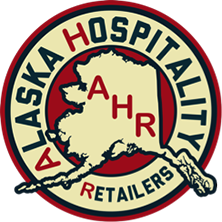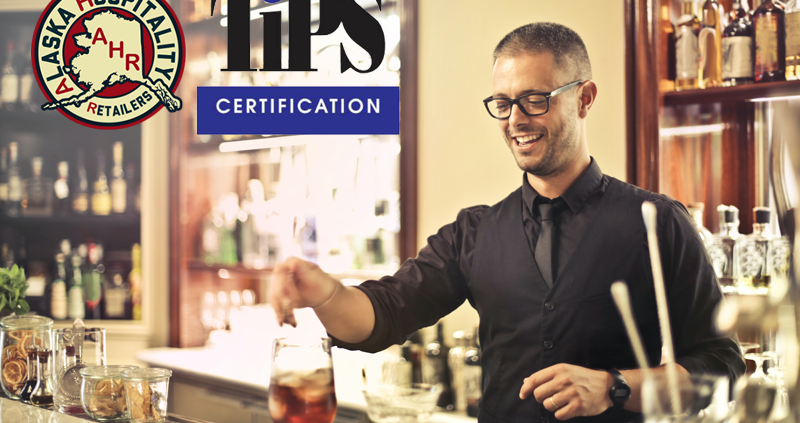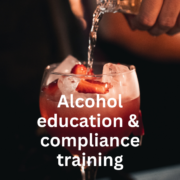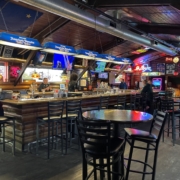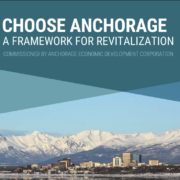Understanding Social Host Liability: Your Responsibility as a Party Host
From TiPS…

The National Minimum Drinking Age Act of 1984 established the minimum drinking age at 21 in the United States, with states implementing laws that prohibit individuals under 21 years of age from purchasing or possessing alcohol in public. However, underage drinking remains a pervasive problem, prompting state legislators to enact Social Host Liability laws that assign responsibility to adults who allow minors to drink alcohol at social gatherings.
This blog will explore the responsibilities and risks associated with hosting events where alcohol is served. Visit the Alaska Hospitality Retailers website for information on TiPs Training.
Social Host Liability Laws
Under Social Host Liability laws, individuals who knowingly provide or allow the use of alcohol by minors or intoxicated adults can be held liable for resulting property damage, injury, death, or violation fines, regardless of whether a tragedy occurs. The host may or may not be the parent; it could be the youth themselves, a sibling/cousin, a friend, or a friend’s parent. These laws aim to combat underage drinking and its negative consequences, including drunk driving, sexual assault, and other risky behaviors.
Dram Shop Laws
It is important to note that Social Host Liability laws do not apply to licensed establishments such as restaurants, bars, and liquor stores, which are covered by dram shop laws. Dram shop laws hold licensed establishments liable for injuries or damages caused by a patron who was over-served or served while visibly intoxicated. These laws are meant to encourage responsible alcohol service and provide a means for third parties to file suit for injuries and fatalities resulting from a liquor law violation.
Common Negligence Laws
In addition to Social Host Liability and dram shop laws, there are also common negligence laws that address negligent behavior related to alcohol. Negligence is defined as not doing what any reasonable person could be expected to do under a certain set of circumstances. With regard to alcohol, it is assumed that a person serving or selling alcohol can be expected to follow a set of procedures, and if they fail to do so, they have acted negligently.
Administrative Penalties for Non-Compliance
Furthermore, there are administrative penalties for non-compliance with government regulations related to alcohol service and sales. Liquor licenses and server permits are granted by state liquor control boards, and violating the terms of a license or permit can result in fines, suspension, or even revocation of the license or permit. Such penalties can cause significant damage to an establishment’s reputation and image or result in unemployment for the server or seller.
Importance of Alcohol Service Training Programs
As a server or seller of alcohol, it is crucial to be aware of the many layers of liability and responsibility associated with alcohol service. Being certified in a quality alcohol service training program, such as TIPS, can help prevent problems resulting from the misuse of alcohol. TIPS teaches servers and sellers how to recognize signs of intoxication and intervene to prevent alcohol-related tragedies. Additionally, knowing and following local laws and regulations is essential to ensuring safe and responsible alcohol service.
Visit the Alaska Hospitality Retailers website for information on TiPs Training.
State-Specific Social Host Liability Laws
It is also important to note that Social Host Liability laws vary by state, and some states do not have such laws at all. Therefore, it is crucial to refer participants to check local ordinances or provide website information so they can learn more. Furthermore, sharing the appropriate state laws and regulations at the time of training can help ensure that servers and sellers are aware of their legal responsibilities and liabilities.
Be Safe and Host Responsibly
Responsible alcohol service involves more than just complying with age limits and ID checks. Social Host Liability laws, dram shop laws, negligence laws, and administrative penalties are all important considerations that servers and sellers must be aware of. By being knowledgeable and certified in quality alcohol service training programs, and by following local laws and regulations, servers and sellers can help prevent alcohol-related tragedies and promote responsible alcohol service.
If you are a social host and want to ensure that your events are safe and responsible, consider getting TIPS certified. TIPS provides the knowledge and skills necessary to recognize signs of intoxication, prevent over-service, and avoid liability. With TIPS training, you can help prevent alcohol-related tragedies and protect yourself from legal consequences.
Visit the Alaska Hospitality Retailers website for information on TiPs Training.
